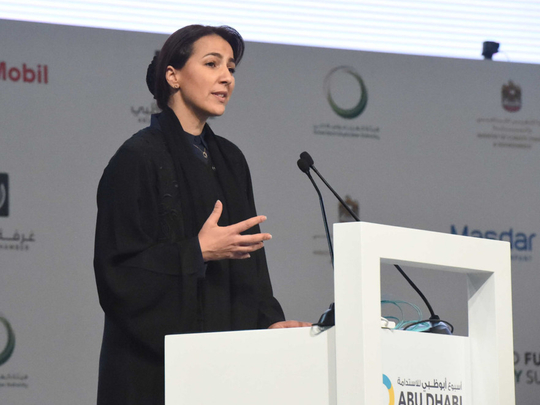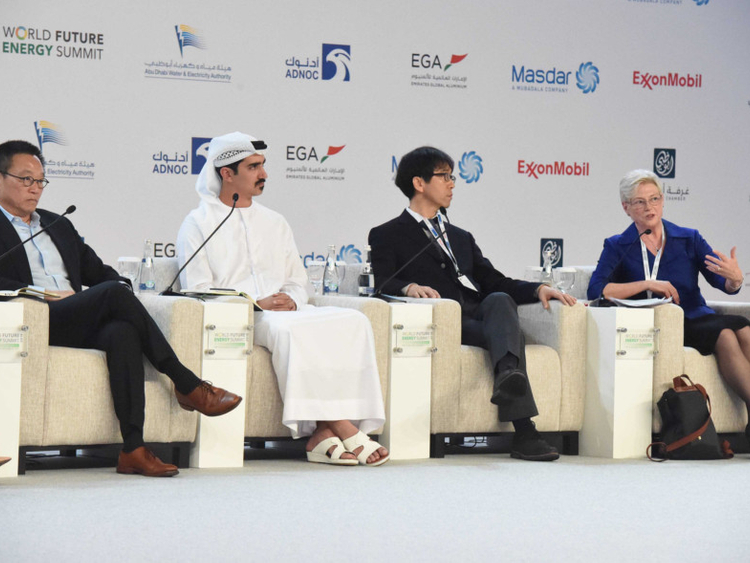
Abu Dhabi: Ensuring global food security will be even more challenging in the future due to climate change, with tens of millions of people who live in arid regions under risk from drought, said a UAE official at the World Future Energy Summit on Tuesday.
“Today millions of people live in dry areas and despite technology and engineering, their situation is as insecure as our forbearers … For all the advances in technology, the blunt truth is that world hunger is on the rise,” said Mariam Al Muhairi, Minister of State for Food Security, addressing the audience.
“The estimated number of under-nourished people around the globe increased from 777 million in 2015 to 815 million in 2016. Almost one eighth of the world’s population lacks food security,” she added, highlighting the stark and rising number of people who are going hungry.
Al Muhairi said the problem wasn’t going to get any easier with the onset of climate change, making the work of governments around the world even harder.
“As climate change accelerates, we will witness … more droughts in already vulnerable areas around the globe. In the UAE we are no stranger to these challenges, our land is dry, [and] our resources scant … [which] is why our leadership here in the UAE has placed sustainability development as a priority.
“Here in the UAE, agriculture is the country’s thirstiest industry, it accounts for more than 70 per cent of the total fresh water consumption … And so further consolidated efforts were taken between federal and local water authorities … And thus the UAE water security strategy 2036 was born,” she added, emphasising some of the policies put in place by the UAE.
Al Muhairi also spoke on the role the public can play in helping food security, particularly when it comes to awareness on things like food consumption and wastage.
“Individuals can make personal efforts to reduce [their] food wastage in addition to minimising food mileage through buying local or even home-grown food,” she said.
Creating a heightened awareness among young people on food security would also be fundamental, she added.
“We must enlist the full support and cooperation of our most valuable resource — our youth,” she said. “They have the knowledge, the drive, determination and social responsibility to make real change,” she added.
According to Al Muhairi, young people could create new market trends with their choices, which in turn would lead to overall positive benefits.
“Through changing their own behaviour … they can affect greater change by altering market behaviour forcing private businesses to match consumer demands and needs,” she said.
Meanwhile, Dr Majid Sultan Al Qasimi, acting assistant undersecretary for Food Diversity, Ministry of Climate Change and Environment, said that raising awareness and bridging the gap between people and the knowledge of where their food comes from could help with reducing food waste.
“The challenge with food security is that there has been a big gap between the consumer and the food they are consuming … We need to close the gap again between where food is being produced, where it is coming from, [and] how it is being produced.
“There used to be a time where you got your meat from the butcher [shop] and you got your bread from the baker, today you get everything from the retailer,” he added, explaining how the local connection between people and their food has been lost.
Al Qasimi said by that getting people to know where their food is coming from, and the process that goes into making it, will give them a better appreciation when consuming it.
“You get a better understanding of the value of everything, from the water [being used] to every vegetable that passes out … The key elements to agriculture — one that is rarely talked about — which is time, it’s not instant [and] plants take time to grow.
“Making [this information] clear to the consumer will change behaviours that can ensure reducing the pressures on food security,” he added.













